What are the best search engines?
Originally conceived as a mixture of business directory and table of contents for the internet, nowadays search engines are central gateways to surfing the web. For many people, Google is the sole option. However, there are a lot of interesting alternatives. We present the most useful search engines.
How do search engines work?
From a user’s perspective, a search engine answers the question, ‘Where can I find what I’m looking for on the internet?’. You enter a phrase or a few words that interest you into a text field and start the search. When the search is completed, a list of web pages that seem relevant to the search term is presented.
To land at the top of the Search Engine Results Pages (SERPs) with your own website, you use search engine optimisation (SEO).
Since internet search engines work with billions of web pages, they cannot all be searched in real time. Therefore, searching the content is separated from answering the search query. An index is used as a link between the searched content and the search term. The index serves as a source of reference to find out which terms occur in which documents. So, instead of searching all the websites every time, search engines only need to check the index that has been created.
So, search engines work in two main ways:
- Crawling + indexing: Locating documents, extracting content from them, and adding them to the index.
- Searching: Receiving search queries and answering them based on the index.
Both processes use different algorithms. This allows a search engine to use an existing third-party index and still offer users added value, for example, through an improved search algorithm or a particularly good user interface. After all, building an index involves a great deal of effort.
Bots, also known as crawlers or spiders, are used to index the content of websites. These are special computer programs that independently search the web. The bot calls up a website address, extracts the content and indexes it. The keywords are added to the index along with the address of the page. The process is then repeated for the links found on the page. In this way, the bot moves through the web like a spider.
For details on how search engines work, see our article on ‘Information Retrieval — how search engines retrieve data’.
The 10 most useful search engines
The ubiquitous Google search has long been the market leader among search engines. But there are some points that speak against Google. For example, the search results displayed are not the same for all users. Rather, Google provides tailored results. The evaluation of previous search queries and linking with further information creates a filter bubble.
If you use Google exclusively, it becomes difficult to think outside the box. Fortunately, it’s quite easy to change your search engine or to use multiple search engines. It’s worth it because it allows you to tap into other sources of information and gain a broader perspective.
We’ll present the most useful search engines. We’re deliberately leaving out Google’s main competitors like Bing and Yahoo. Instead, we’ll present search engines that provide answers to very different questions.
| Search engine | Unique selling point | Index |
|---|---|---|
| The market leader among search engines | Self-created | |
| Ecosia | The ecological alternative | From Bing |
| DuckDuckGo | Search engine to break out of the filter bubble | From Bing |
| Qwant | The European search engine | Self-created |
| Yandex | Search engine for the Russian market | Self-created |
| Baidu | Search engine for the Chinese market | Self-created |
| WolframAlpha | A computational knowledge engine | Self-created |
| Internet Archive Search | Access to free library works | Self-created |
| Openverse | Find Creative Commons licensed works | Self-created |
| Tor Search | Securely search the dark web | Self-created |
Google – The market leader among search engines
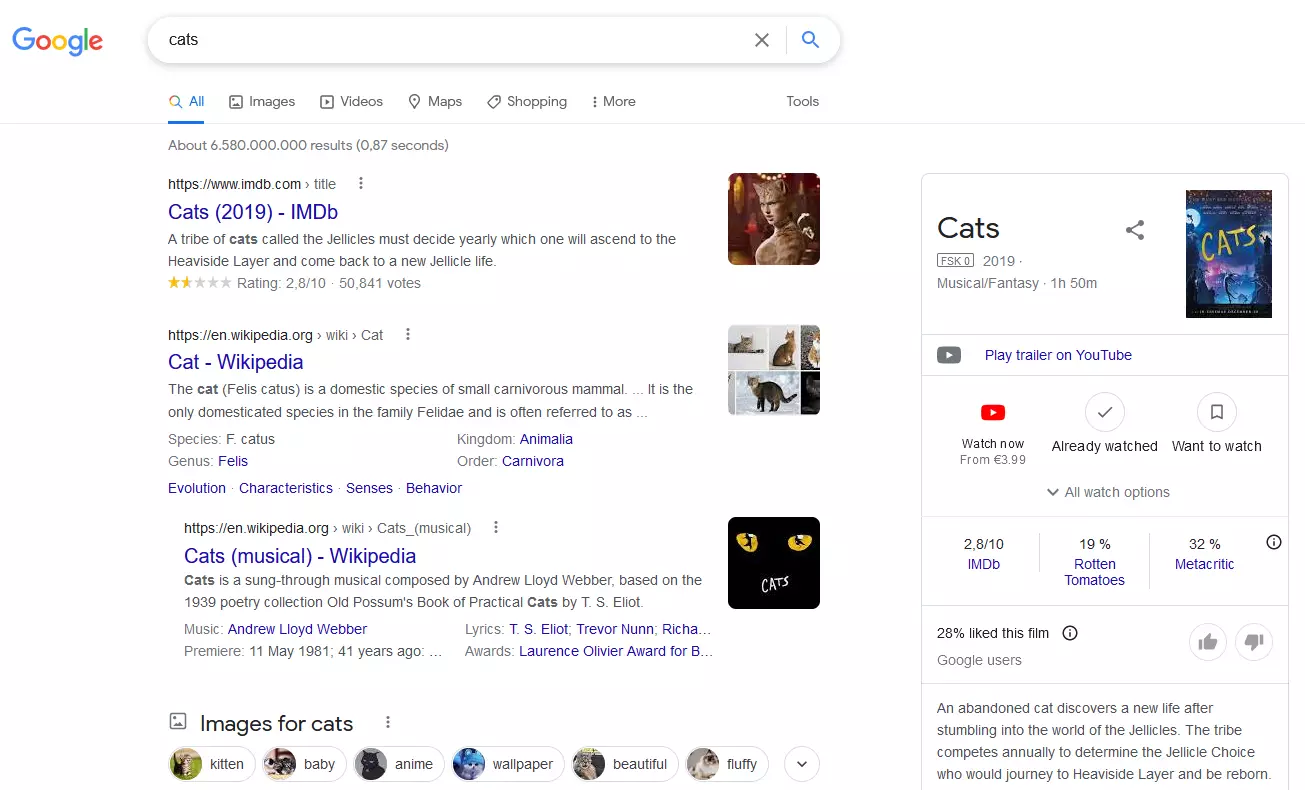
Google is the world’s largest search engine and is, for many people, synonymous with searching the web. ‘I need to google that’ is often said, for example. What many users may not be aware of is the extent of subliminal manipulation they are exposed to when searching with Google. That’s because all results are customised for the particular searcher. On one hand, this is practical, because you often get matching results. On the other hand, control over the search results displayed gives the U.S. company an incredible position of power.
Google pursues its own interests when presenting search results and makes a large part of its profits from search engine advertising. Furthermore, extensive profiles are created about logged-in users. It’s enough to be logged into Gmail or Google Maps in the same browser for information to be collected. A number of alternatives to Google have emerged as a result of this controversial topic.
To get the most neutral list of search results from Google, run the search in your browser in an incognito or private window.
Ecosia – The ecological search engine
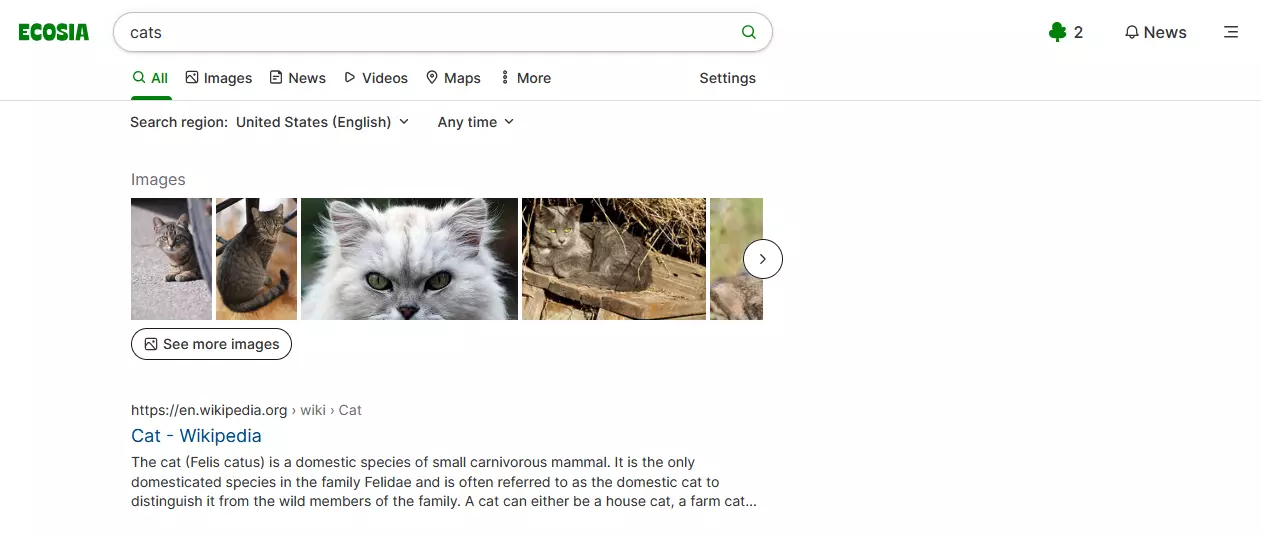
Google searches are free of charge for users, so it’s easy to overlook the fact that every Google search actually has its price since every search consumes energy. The ecological search engine Ecosia turns the tables in the name of green IT. Each search generates revenue, which is invested in reforestation projects. In June 2022, almost three million dollars (around 2.5 million pounds) were collected. By that time, more than 150 million trees had already been planted. So, it can’t hurt to set Ecosia as your default search engine. For its searches, Ecosia uses Microsoft Bing’s search engine index.
DuckDuckGo – The search engine to break out of the filter bubble
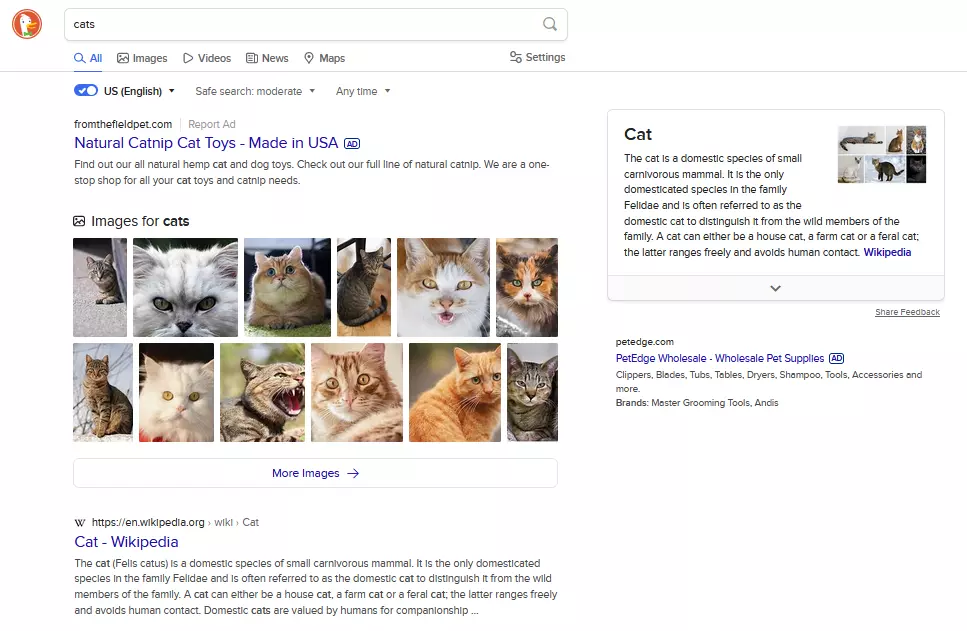
The search engine DuckDuckGo also uses the Bing search index. With DuckDuckGo, the focus is on privacy. The search engine does not collect any private data on its users.
At the same time, DuckDuckGo makes it particularly easy to access targeted information from different sources. With ‘bangs’, searches can be specialised. To do this, simply add an abbreviation consisting of an exclamation mark and a few letters to the search term. This takes you directly to the results page of the corresponding knowledge platform. Bangs are practical and, once you get used to them, you can’t imagine surfing without them.
| DuckDuckGo Bang | Portal | Example | Explanation |
|---|---|---|---|
| !w | English Wikipedia | !w manchester | Go to the English Wikipedia page about Manchester. |
| !wes | Spanish Wikipedia | !wes manchester | Go to the Spanish Wikipedia page about Manchester. |
| !g | Google search | !g manchester | Perform a Google search on Manchester. |
| !img | Image search | !img manchester | View images of Manchester. |
| !map | Google Maps search | !map manchester | Show Manchester on Google Maps. |
| !yt | YouTube | !yt manchester | View YouTube videos related to Manchester. |
| !wq | Qwant | !wq manchester | Perform a Qwant search on Manchester. |
| !bang | DuckDuckGo | !bang | Browse available bangs. |
The bang can occur anywhere within the search, so it doesn’t have to be at the beginning.
Qwant – The European search engine
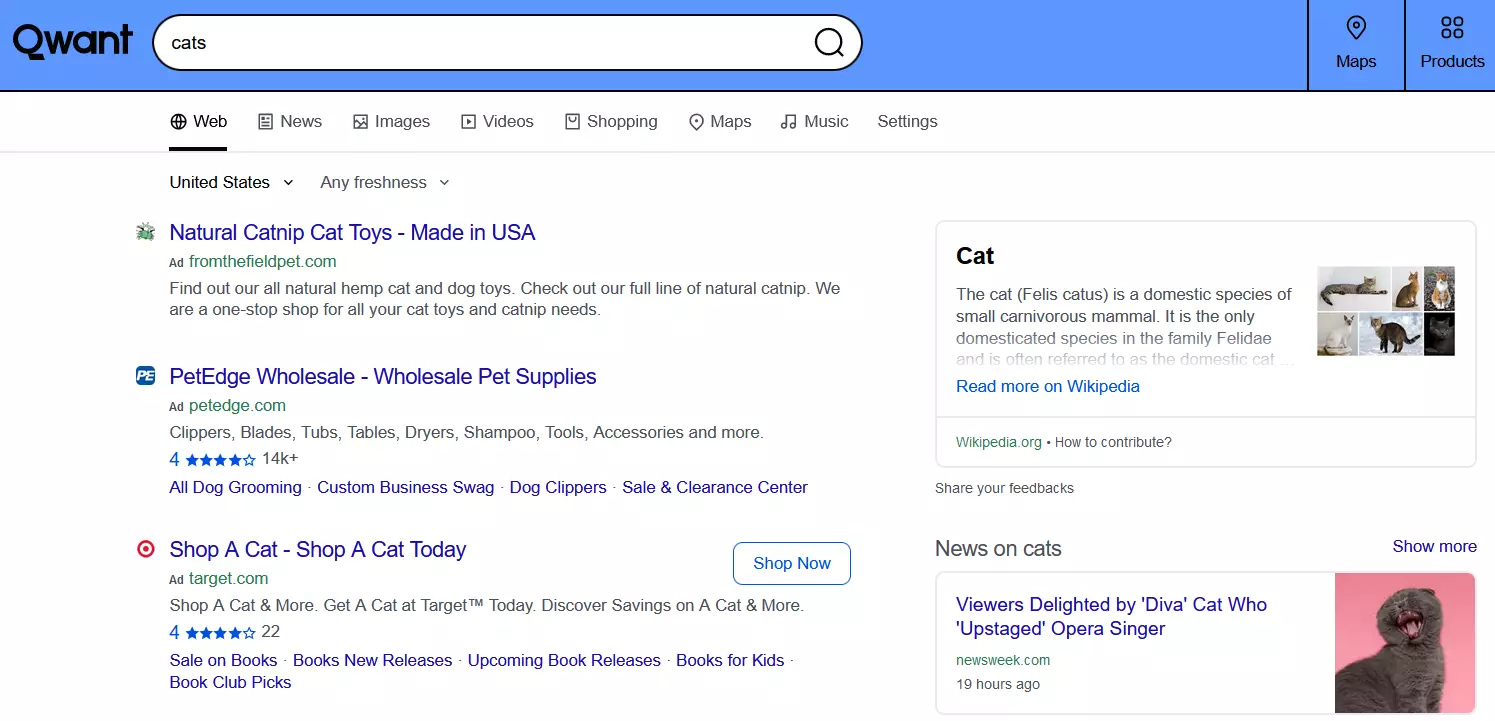
With Qwant, you get a European search engine that also focuses on privacy. Unlike Ecosia and DuckDuckGo, Qwant even maintains its own index. The map search uses open map material from OpenStreetMaps. A lite version especially suitable for mobile devices and an integrated children’s search for half a dozen countries round out the offer.
We present the most popular children’s search engines in a separate article.
Yandex – The search engine for the Russian market
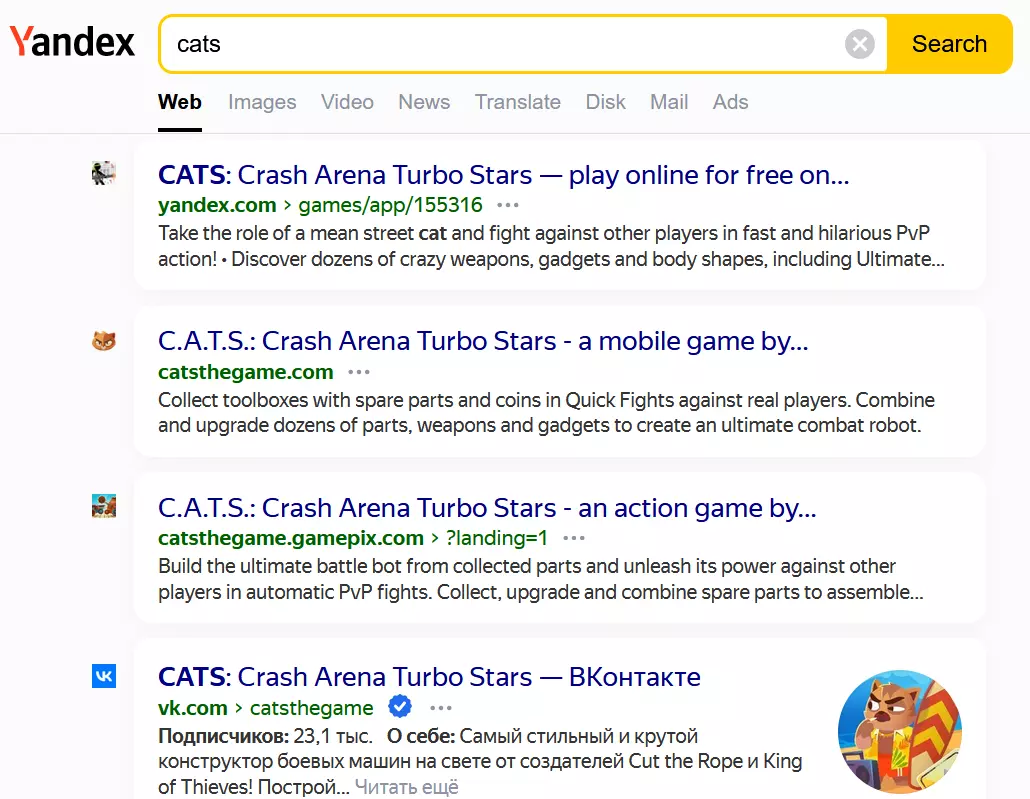
Yandex is the largest search engine for the Russian market. It also operates in Belarus, Kazakhstan, Uzbekistan and Turkey, which is a combined catchment area of nearly 300 million people. Yandex maintains its own index and is also available in English.
Baidu – The search engine for the Chinese market
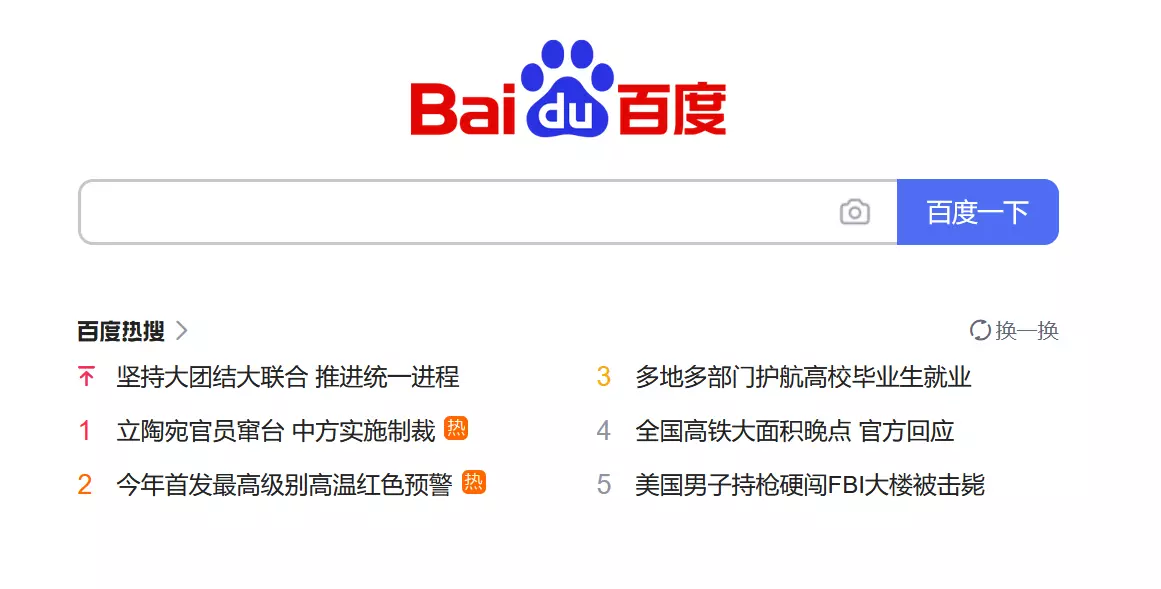
Baidu is the largest search engine for the Chinese market. Its own index contains information that is unlikely to be found through Google or the other search engines. The user interface is completely in Chinese characters. However, there are special sites, such as Baidu in English, which provide a translation of the search query and search results. When searching, keep in mind that the internet in China is heavily censored.
WolframAlpha – A computational knowledge engine
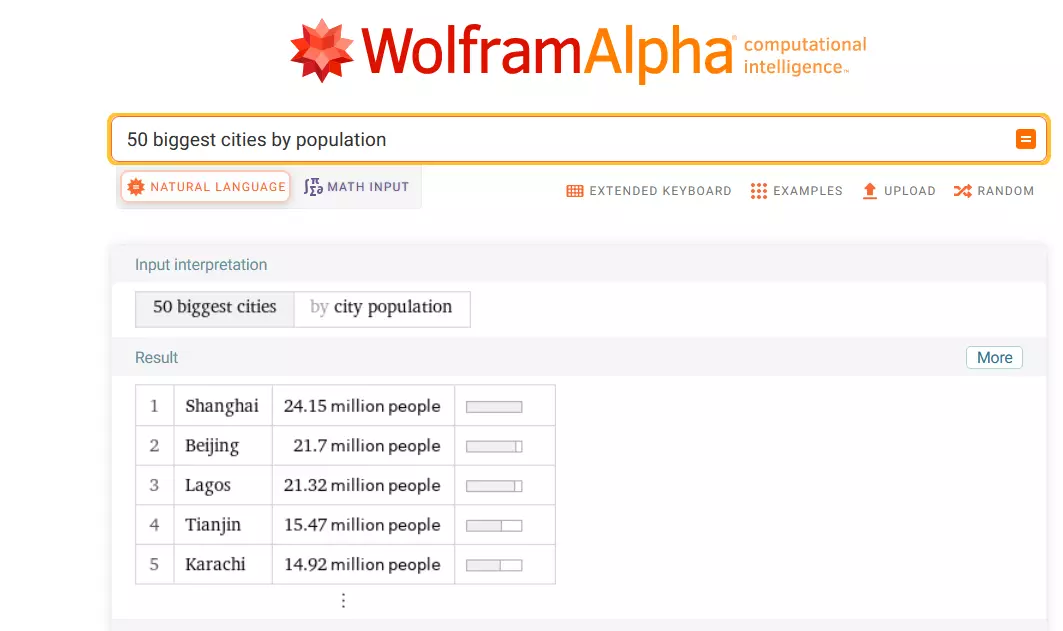
WolframAlpha is not a search engine in the true sense. The platform describes itself as a ‘computational knowledge engine’. The publicly available search function evaluates queries semantically and then returns facts. The results are not opinions from posts on the internet, but scientifically based statements. WolframAlpha also serves as a point of contact for specific questions that searchers have posed to Bing, Siri or Alexa.
Let’s say you want an overview of the 50 most populous cities in the world. You could probably find a corresponding list on Wikipedia. However, you have to assume that it was created manually. If you ask WolframAlpha for the ‘50 biggest cities by population’, you get a detailed and precise answer. Besides the list of cities, statistics of population numbers and a map showing the geographical distribution are also included.
Internet Archive Search – The search engine for free library works
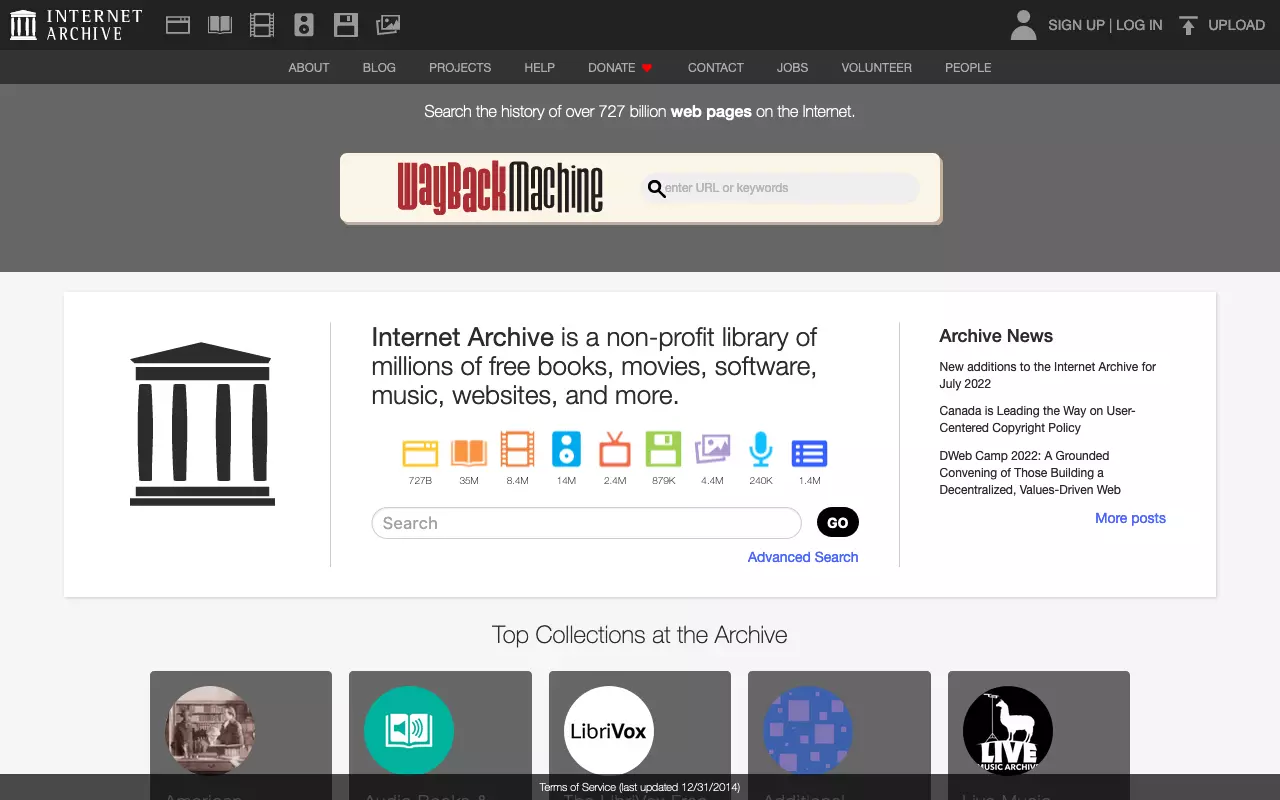
The internet is constantly changing. Sites go offline, content is deleted and dead links lead nowhere. Sometimes it’s useful to turn back time. This time travel is made possible by the ‘WayBack Machine’ from the non-profit Internet Archive. This allows old versions of websites to be restored in some cases.

But the Internet Archive Search offers even more. The search engine also finds books, radio recordings and other media files, all keyworded and archived over decades.
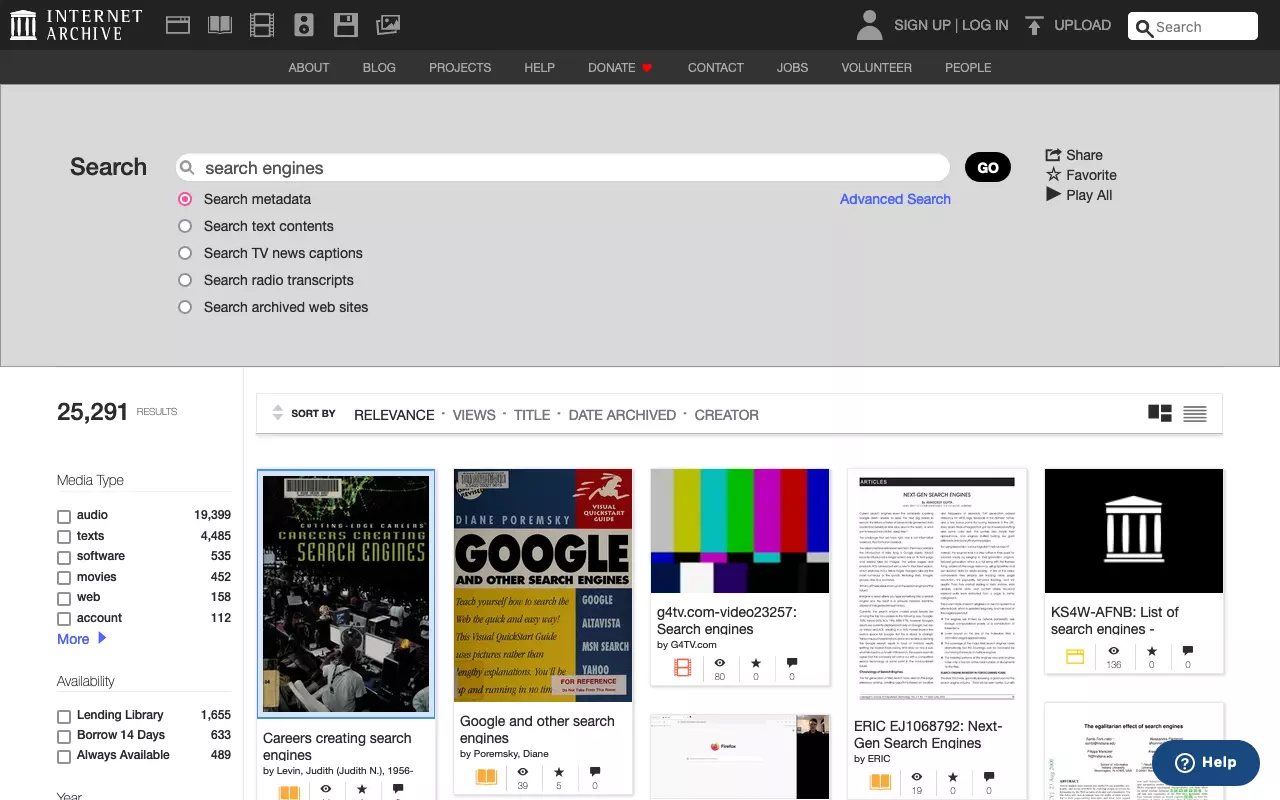
Openverse – The search engine for Creative Commons licensed works
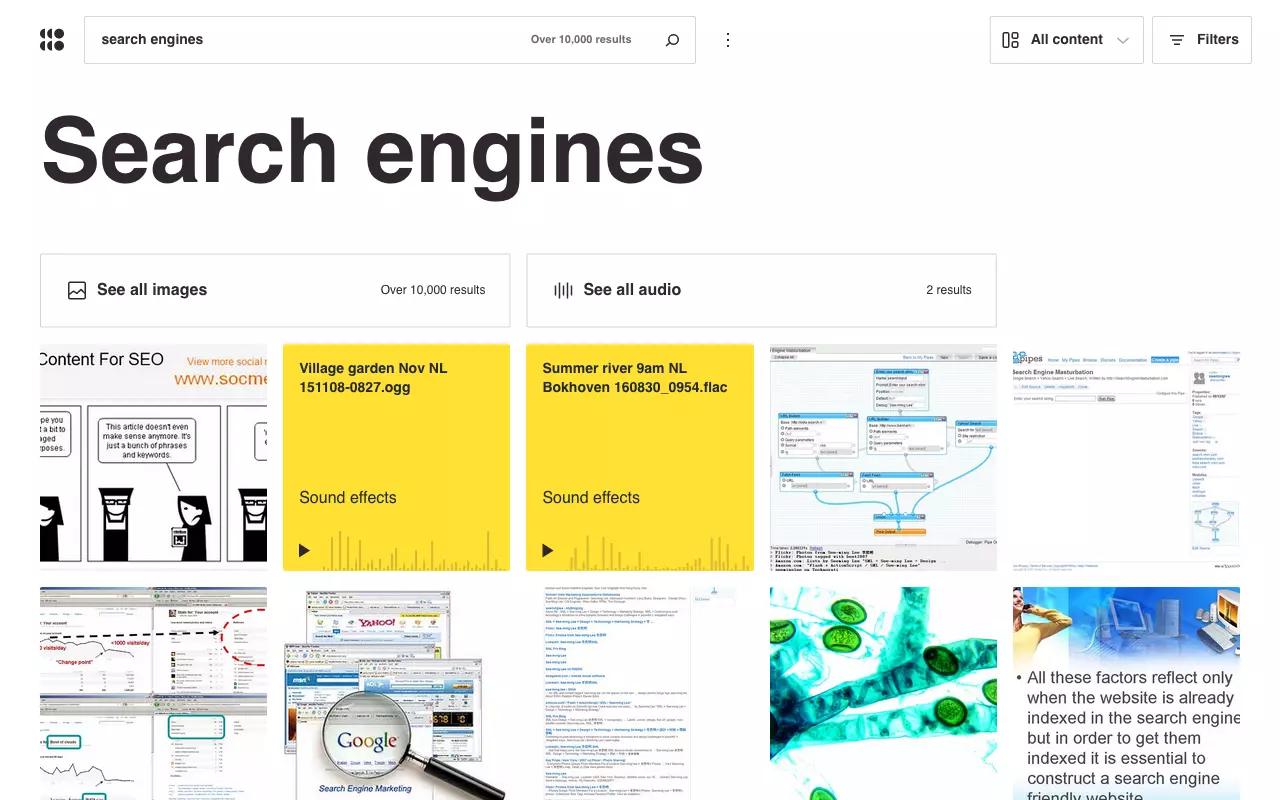
What open source is to software projects and code, Creative Commons (CC) is to cultural artifacts. Media and content published under CC licenses can be used outside the strict rules of ordinary copyright. The author determines whether commercial use or the creation of derivatives should also be permitted.
The Openverse search engine finds millions of CC-licensed materials, drawing on public catalogues and the freely available ‘Common Crawl’ dataset. The project found a new home on WordPress in the spring of 2021. The search engine is particularly popular with users from the education sector as the content can be used without hesitation for their own projects, such as presentations.
Tor Search – A secure search engine for the dark web
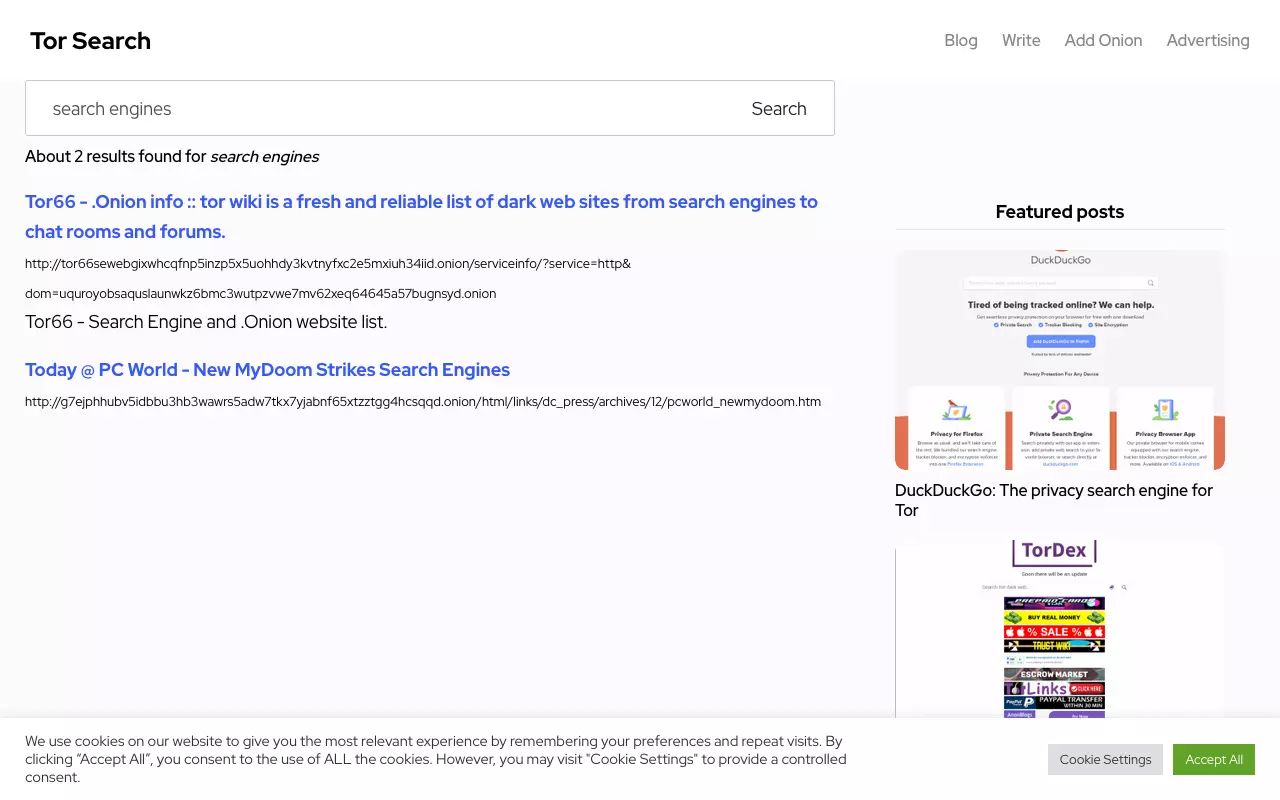
When you hear the term dark web, you probably first think of illegal platforms for drug and weapons trafficking. Of course these exist, but the dark web also includes completely legal content. Even industry giants like Facebook are now represented there. Especially for societies that are subject to authoritarian rule, the dark web offers freedom from omnipresent censorship. With Tor Search, the dark web can be searched securely, because the search engine filters out illegal content.
Like a ‘normal’ search engine, Tor Search returns web addresses. However, these are not the familiar HTTP links because, on the dark web, sites operate under ‘onion addresses’. These are cryptic strings that end in .onion. Tor Search can also be found under an onion address: wapabp2pnqczbxq4dqdo7txexhkqjzazmvrljxijtd5s2cohvejf4nqd.onion. To access onion links, the highly secured Tor browser is required, which is a variant of Firefox and can be installed by anyone.

